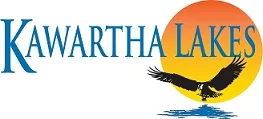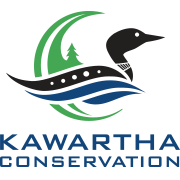City of Kawartha Lakes
City of Kawartha Lakes
The City of Kawartha Lakes completed an lntegrated Community Sustainability Plan (ICSP) that Council endorsed in 2014. The sustainability plan is structured to balance and integrate community economic, social and environmental objectives. To learn more, please visit their website.
Kawartha Conservation:
Kawartha Conservation is a watershed-based, non-profit organization established in 1979 by the municipalities within our watershed under the Ontario Conservation Authorities Act. We are one of 36 conservation authorities operating in Ontario and a member of Conservation Ontario.
Balancing environmental capacity and human need, we manage natural resource features that are essential for sustaining water quality and quantity, through watershed planning, stewardship, environmental monitoring and research, and management of conservation and natural areas.
Our programs and services are focused within the natural boundaries of the Kawartha watershed, which extend from Lake Scugog in the southwest and Pigeon Lake in the east, to Balsam Lake in the northwest and Crystal Lake in the northeast – a total of 2,563 square kilometres.
These natural boundaries overlap the six municipalities that govern Kawartha Conservation through representation on our Board of Directors. Our municipal partners include the City of Kawartha Lakes, the Township of Scugog, the Township of Brock, the Municipality of Clarington, the Municipality of Trent Lakes, and the Township of Cavan Monaghan.
Feed All Four:
Feed All Four was developed in Trillium Lakelands District School Board out of an ongoing need to align teaching and learning with safe and accepting schools, mental health, healthy active living, and student well-being. Research indicates that supporting the body, mind, spirit, and emotions of an individual increases a sense of well-being, connectedness and resilience, and improves student achievement. The body, mind, spirit, and emotions of an individual need to be fed consistently in order to optimize achievement and well-being.
Feed All Four is based upon Maslow’s Hierarchy of Needs and the First Nations medicine wheel. Classroom teachers can incorporate Feed All Four into classroom activities and a whole school approach may be utilized by school communities.
Our community partners are invited to incorporate Feed All Four into their organizations and in the work they do with students. We encourage families to use Feed All Four as a checkpoint for discussions and activities centred on well-being. The concept of Feed All Four continues to be shared widely across the province. Feedback from all of our stakeholders is extremely positive.
Feed All Four has a positive impact on our school communities with the potential to change school culture, impact teaching and learning, and enhance well-being and achievement. Feed All Four also enhances and encourages parent and community engagement. Want to know more? Visit puzzlepeace.ca or tldsb.ca.



